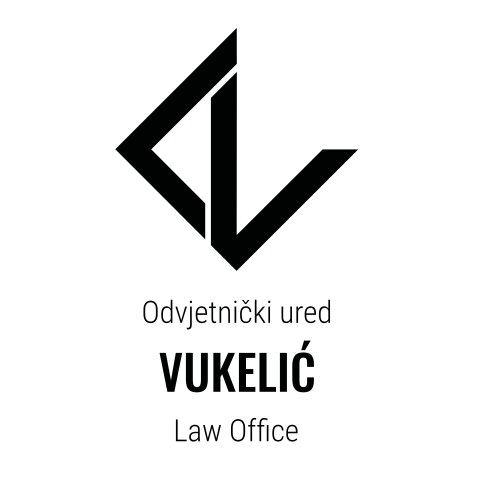Best Private Equity Lawyers in Zagreb
Share your needs with us, get contacted by law firms.
Free. Takes 2 min.
List of the best lawyers in Zagreb, Croatia
About Private Equity Law in Zagreb, Croatia
Private equity law in Zagreb, Croatia, governs the investment of capital in private companies that are not publicly listed on stock exchanges. This area of law covers the formation, acquisition, financing, and exit of investments made by private equity funds and investors. Zagreb, as Croatia’s capital and economic center, offers a dynamic market for private equity transactions, with opportunities in various sectors including infrastructure, technology, tourism, and manufacturing. Private equity investments play a significant role in stimulating business growth, job creation, and industry innovation. Legal frameworks ensure these transactions are transparent, lawful, and beneficial for all parties involved.
Why You May Need a Lawyer
Private equity transactions are complex and involve significant amounts of capital, multiple stakeholders, and compliance with strict regulations. Here are common situations in which you may require legal help in private equity in Zagreb:
- Negotiating and structuring private equity deals
- Drafting or reviewing investment and shareholder agreements
- Legal due diligence on target companies
- Regulatory compliance with Croatian and EU laws
- Resolving disputes between investors, companies, and other stakeholders
- Advising on tax implications and optimization
- Planning exit strategies, such as IPOs or buyouts
- Protecting intellectual property and business assets during investment
- Assisting with cross-border transactions
An experienced lawyer can assess your unique situation, provide tailored advice, and help you navigate the legal and regulatory landscape of private equity in Zagreb, safeguarding your interests at every stage.
Local Laws Overview
Croatia’s legal framework for private equity is shaped by a combination of national laws and European Union regulations. The key aspects relevant to Zagreb include:
- Company Law - The Companies Act governs how companies can be formed, managed, and acquired, including rules for limited liability and joint-stock companies.
- Securities Law - Regulations related to the issuance and transfer of shares, relevant for both investment and exits such as IPOs.
- Foreign Investment Regulation - Croatia encourages foreign investment, but certain sectors may have restrictions or require approval from regulatory authorities.
- European Union Directives - As an EU member, Croatia adheres to directives affecting private equity funds, anti-money laundering (AML), transparency, and competition law.
- Contract Law - Croatian Civil Obligations Act governs contracts, which is crucial for investment, shareholder, and partnership agreements.
- Taxation - Corporate tax, capital gains tax, and withholding tax can significantly impact returns on investment, and careful tax structuring is essential.
- Employment Law - When investing in or restructuring companies, compliance with local employment regulations is a must.
Understanding these legal dimensions is essential for all parties involved in private equity transactions in Zagreb.
Frequently Asked Questions
What is private equity?
Private equity refers to investment capital that is not listed on a public exchange. Funds and investors invest directly in companies or buy them out, often aiming to enhance growth and profitability before exiting the investment.
Is private equity regulated in Croatia?
Yes, private equity activities are regulated by Croatian authorities and must also comply with EU laws, especially those related to investment funds, anti-money laundering, and fair competition.
Can foreign investors participate in Croatian private equity?
Yes, Croatia welcomes foreign investment in private equity. However, there may be additional disclosure or approval requirements in certain industries like defense or transport.
What is legal due diligence in private equity deals?
Legal due diligence involves a comprehensive review of a target company’s legal, financial, and compliance status to identify risks before finalizing an investment or acquisition.
What agreements are usually involved in private equity transactions?
Common agreements include investment agreements, shareholder agreements, share purchase agreements, and management agreements, all of which should be carefully drafted or reviewed by legal professionals.
What taxes apply to private equity investments in Croatia?
Key taxes include corporate income tax, capital gains tax, dividend tax, and sometimes withholding tax. Tax rates and obligations depend on the transaction structure and investor profile.
How does a private equity firm exit its investment?
Exit options generally include selling shares to another investor, conducting an initial public offering (IPO), or through a management buyout.
What role do local authorities play in private equity deals?
Regulatory bodies oversee licensing, monitor compliance, approve certain deals, and can intervene if any aspect of the transaction violates competition or strategic sector regulations.
What are the risks of private equity investments?
Risks include loss of capital, regulatory changes, operational challenges, and dispute with other stakeholders. Legal advice can help mitigate these risks.
Do I need a lawyer for smaller private equity investments?
Even for smaller investments, legal assistance is recommended to ensure compliance, protect your interests, and prevent potential future legal complications.
Additional Resources
The following organizations and bodies are helpful for individuals and businesses involved in private equity in Zagreb:
- Croatian Financial Services Supervisory Agency (HANFA) - Regulates financial markets and investment funds
- Croatian Chamber of Commerce - Provides industry guidelines and networking
- Ministry of Economy and Sustainable Development - Governs policies related to business and investment
- Croatian National Bank - Regulatory insight for cross-border financial transactions
- European Bank for Reconstruction and Development (EBRD) - Information on investment projects and financing
- Local law firms specializing in private equity and corporate law
Next Steps
If you are considering or involved in a private equity transaction in Zagreb, Croatia, here are recommended next steps:
- Assess your goals and identify the type and size of investment or transaction
- Consult with a lawyer experienced in Croatian private equity law to review your options
- Gather all relevant documentation, including company records, financials, and previous agreements
- Conduct proper legal due diligence with your lawyer’s support
- Work with professionals to structure the deal for compliance and optimal tax efficiency
- Continue to seek legal advice throughout negotiations, drafting of contracts, and after closing the deal
Legal guidance is critical in successfully navigating private equity transactions, safeguarding your interests, and ensuring compliance with all relevant laws and regulations in Zagreb, Croatia.
Lawzana helps you find the best lawyers and law firms in Zagreb through a curated and pre-screened list of qualified legal professionals. Our platform offers rankings and detailed profiles of attorneys and law firms, allowing you to compare based on practice areas, including Private Equity, experience, and client feedback.
Each profile includes a description of the firm's areas of practice, client reviews, team members and partners, year of establishment, spoken languages, office locations, contact information, social media presence, and any published articles or resources. Most firms on our platform speak English and are experienced in both local and international legal matters.
Get a quote from top-rated law firms in Zagreb, Croatia — quickly, securely, and without unnecessary hassle.
Disclaimer:
The information provided on this page is for general informational purposes only and does not constitute legal advice. While we strive to ensure the accuracy and relevance of the content, legal information may change over time, and interpretations of the law can vary. You should always consult with a qualified legal professional for advice specific to your situation.
We disclaim all liability for actions taken or not taken based on the content of this page. If you believe any information is incorrect or outdated, please contact us, and we will review and update it where appropriate.

















